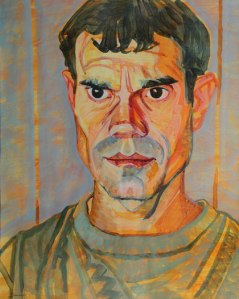Kevin Kopelson is Emeritus Professor of English at the University of Iowa. He received a B.A. from Yale University, a J.D. from Columbia University, and a Ph.D. from Brown University. He has published extensively in the fields of sexuality studies, critical theory, cultural studies, and 20th-century literature, and is an occasional contributor to the London Review of Books.
Kopelson’s first three books are nostalgic, concerning supposedly passé art forms and ideologies. Love’s Litany examines ways in which 19th-century conceptions of romantic love have shaped 20th-century conceptions of homosexuality, as seen in work by Oscar Wilde, Ronald Firbank, André Gide, Virginia Woolf, Gertrude Stein, Marguerite Yourcenar, Mary Renault, and Roland Barthes. Beethoven’s Kiss examines ways in which the performance of 19th-century piano music has shaped that of 20th-century homosexuality, with special attention paid to the erotic anxieties of amateurism (that of Gide and Barthes in particular), the sexualization of the child prodigy (young Franz Liszt in particular), the sexualization of the male virtuoso (Liszt, Vladimir Horowitz, Arthur Rubinstein, Van Cliburn), castrating figurations of the female teacher, and the convergence, in Liberace, of issues concerning class, the “closet,” and the “camp” sensibility. The Queer Afterlife of Vaslav Nijinsky examines the modern reception of this classical ballet dancer (yet another “sexual virtuoso” – as well as the most important gay celebrity after Wilde). It performs an impressionistic (or Paterian) account of Nijinsky’s career as well, also considering the limits of the predominantly deconstructive (or Barthesian) methodology of all three books.
Kopelson’s subsequent work is humanistic. Finishing Proust is a novel – or perhaps pseudo-novel. Neatness Counts is the first full-length study of the poetics of the modern writer’s workspace. It looks at Barthes, Marcel Proust, Elizabeth Bishop, Tom Stoppard, and Bruce Chatwin. Sedaris relates roles played in life by David Sedaris with ones that this most confessional of contemporary satirists plays with his readers. Confessions of a Plagiarist, part of which first appeared in the London Review of Books, relates Kopelson’s own life to his work as an academic. Adorno and the Showgirl relates to itself, in some way, as a somewhat belated work. It looks, as well, at Theodor Adorno, Charles Rosen, Federico Fellini, Friedrich Nietzsche, and Joseph Cornell.
(See also: http://uiowa.academia.edu/KevinKopelson.)

You may remember me from the 20th century. Yesterday I was filmed in a documentary about Billy Preston, the “Fifth Beatle,” a famous gospel singer/musician. Since I’ve written quite a bit about the gay life in gospel, they emphasized that aspect of Billy’s story — among other things, his infatuation with Mexican boys landing him in jail. During the long interview, I tried to provide several kinds of cultural context. I cited your splendid argument that the piano is the gay boy’s instrument. Let’s hope it makes the director’s cut! If you’re ever back in my town, perhaps we can reconnect.
LikeLiked by 1 person
Hi, Tony. Thanks for mentioning my work in that interview and for your kind comment here. I do remember you — quite fondly — from the 20th century.
LikeLike